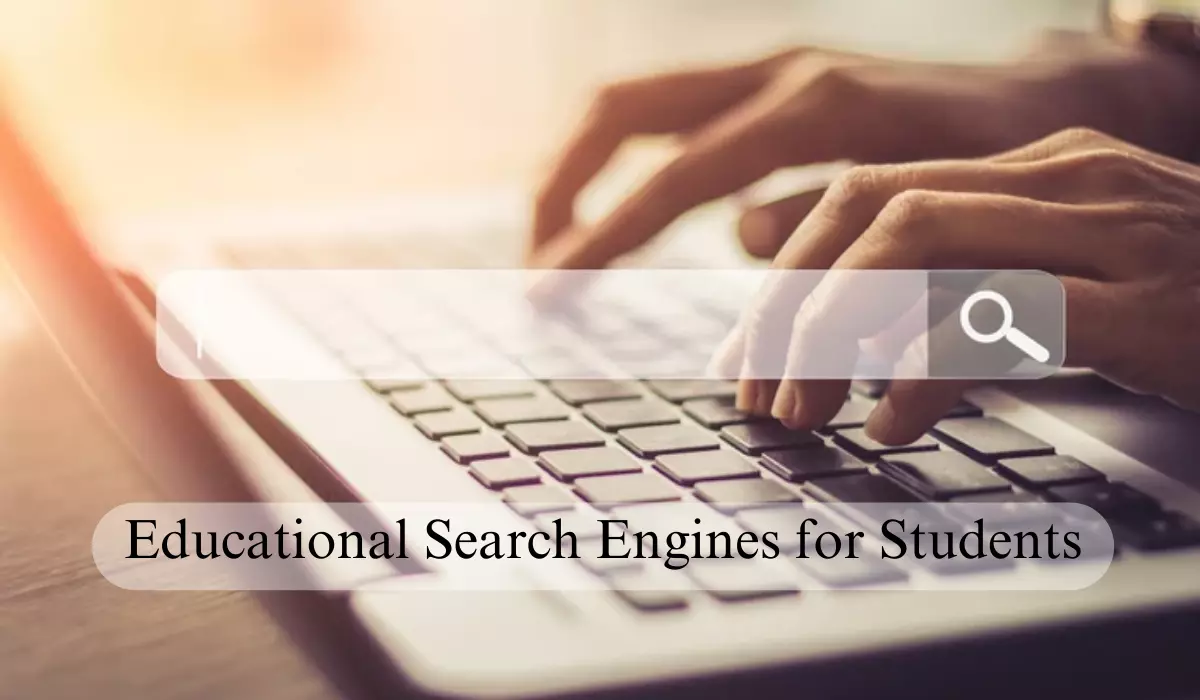Educational Search Engines are specialised search engines for finding scholarly and academic information. Students need to cite reputable sources for their research papers or other academic assignments. Usual search engines are good for navigating the vast internet. However, it becomes difficult to find reputable sources such as research papers and clinical trials.
The article mentions the top 10 educational search engines for students, such as Google Scholar, Google Books, Microsoft Academic, WorldWideScience, Educational Resources Information Center (ERIC), Virtual Learning Resources Center (VLRC), ResearchGate, PubMed Central, Infotopia, and Science.gov.
1. Google Scholar
Google Scholar was created by Google to create a database of scholarly literature from the web. Students can find different scholarly literature, such as peer-reviewed papers, theses, books, research papers, clinical trials, and discoveries from many different academic institutions and organisations.
2. Google Books
Google Books was created by Google to browse the index containing thousands of books from various authors and publications. You can search books using the title, author, publication, and ISBN number. It stores information such as reviews, where to buy, sample pages, and entire book information for certain books.
3. Microsoft Academic
Microsoft Academic was created by Microsoft for storing over 120 million publications in its database and allowing students to search scientific papers, research, journals, and conferences.
4. WorldWideScience
WorldWideScience is managed by the U.S. Department of Energy. It searches databases from more than 70 countries for academic resources. You can search for both English and translated academic resources.
5. Educational Resources Information Center (ERIC)
The Educational Resources Information Center (ERIC) is managed by the U.S. Department of Education. ERIC has over 1.3 million bibliographic educational literature.
6. Virtual Learning Resources Center (VLRC)
Virtual Learning Resources Center (VLRC) is an online index of academic resources. It is an alternative to Google Scholar. The index stores the websites reviewed by librarians and teachers on topics such as Art, Social sciences, Social Issues, and History.
7. ResearchGate
ResearchGate is a social networking website for scientists and researchers. It has over 11 million researchers who share their work. The users can share research papers, do projects together, find experts in a particular field, and ask questions.
8. PubMed Central
PubMed Central (PMC) is a free and open-access digital library of academic articles, such as medical research, clinical trials, and analytical studies. These resources are published in biomedical and life sciences journals.
9. Infotopia
Infotopia is a free educational search engine optimized for students and teachers. It is based on Google searches and searches from websites reviewed by librarians and teachers. It covers various topics, such as Sci/Tech, Images, Games, Health, and mythology.
10. Science.gov
Science.gov is a free search engine that searches for information from 13 federal agencies, including the Department of Homeland Security, U.S. Geological Survey, Department of Transportation, Environmental Protection Agency, Government Publishing Office, National Aeronautics and Space Administration, and National Science Foundation. It has an index of over 2200 scientific websites and 70 scientific databases.
Final Words
Educational Search Engines for Students provide access to various academic resources to students, including research papers, medical studies, books, clinical trials, studies from scholars, and theses. The top 10 educational search engines include Google Scholar, Google Books, Microsoft Academic, Science.gov, PubMed Central, Researchgate, and others. Each search engine has its own index and database of academic resources and searches through them.
Utilizing the internet effectively for college students involves discerning credible sources, leveraging online tools for research, and fostering digital literacy to maximize learning opportunities and academic resources.













